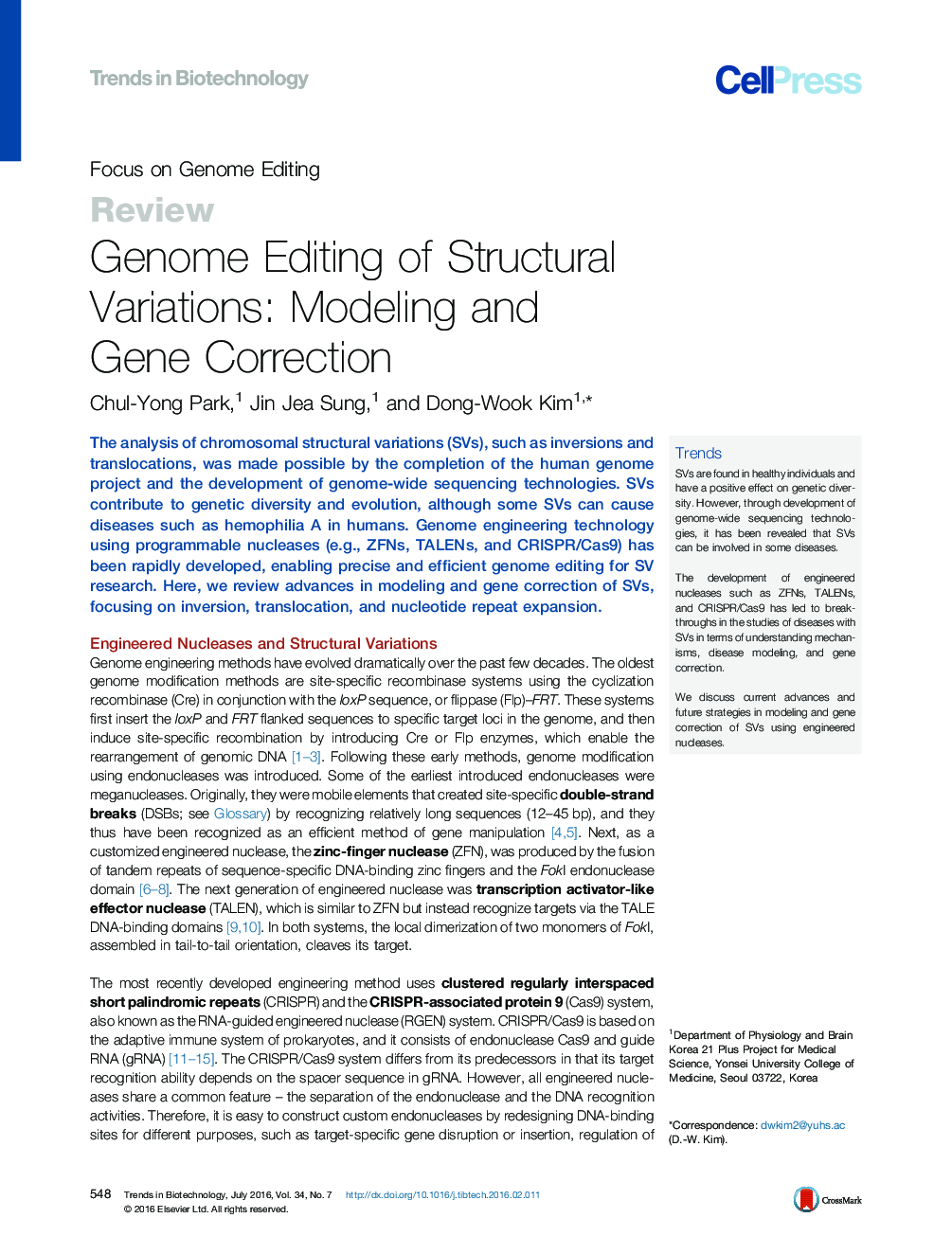| Article ID | Journal | Published Year | Pages | File Type |
|---|---|---|---|---|
| 36807 | Trends in Biotechnology | 2016 | 14 Pages |
The analysis of chromosomal structural variations (SVs), such as inversions and translocations, was made possible by the completion of the human genome project and the development of genome-wide sequencing technologies. SVs contribute to genetic diversity and evolution, although some SVs can cause diseases such as hemophilia A in humans. Genome engineering technology using programmable nucleases (e.g., ZFNs, TALENs, and CRISPR/Cas9) has been rapidly developed, enabling precise and efficient genome editing for SV research. Here, we review advances in modeling and gene correction of SVs, focusing on inversion, translocation, and nucleotide repeat expansion.
TrendsSVs are found in healthy individuals and have a positive effect on genetic diversity. However, through development of genome-wide sequencing technologies, it has been revealed that SVs can be involved in some diseases.The development of engineered nucleases such as ZFNs, TALENs, and CRISPR/Cas9 has led to breakthroughs in the studies of diseases with SVs in terms of understanding mechanisms, disease modeling, and gene correction.We discuss current advances and future strategies in modeling and gene correction of SVs using engineered nucleases.
